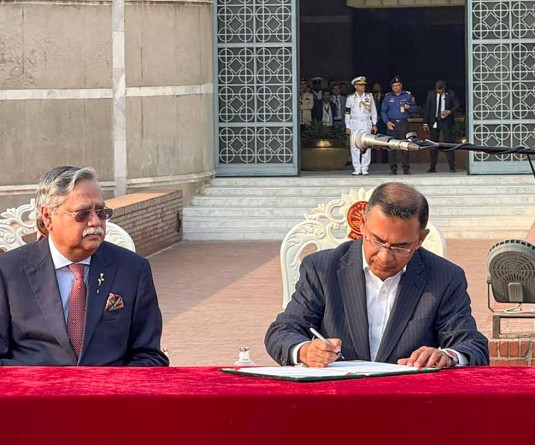
New York, December 13 (IANS): Global climate leaders took a major stride towards a resilient, net zero emissions future today, presenting ambitious new commitments, urgent actions and concrete plans to confront the climate crisis.
Co-convened by the United Nations, the UK and France, in partnership with Italy and Chile, on the fifth anniversary of the Paris Agreement, Saturday's Climate Ambition Summit marked a major milestone on the road to the crucial UN climate conference COP26 in Glasgow next November.
A total of 75 leaders from all continents outlined new commitments at the summit. This is a clear signal that the Paris Agreement -- more than ever before the compass of international action -- is working to steeply increase climate action and ambition.
Climate destruction is accelerating, and there remains much more to do as a global community to keep the global temperature rise to 1.5 degrees Celsius.
However, the summit showed beyond doubt that climate action and ambition are on the rise. The announcements at or just before the summit, together with those expected early next year, mean that countries representing around 65 per cent of global CO2 emissions, and around 70 per cent of the world's economy, will have committed to reaching net zero emissions or carbon neutrality by early next year.
These commitments must now be backed up with concrete plans and actions, starting now, to achieve these goals, and the summit delivered a surge in progress on this front.
The number of countries coming forward with strengthened national climate plans (NDCs) grew significantly today, with commitments covering 71 countries (all EU member states are included in the new EU NDC) on display. As well as the EU NDC, a further 27 of these new and enhanced NDCs were announced at or shortly before the summit.
A growing number of countries (15) shifted gears from incremental to major increases. Countries committing to much stronger NDCs at the Summit, included Argentina, Barbados, Canada, Colombia, Iceland, and Peru.
The leadership and strengthened NDCs delivered at the summit mean "we are now on track" to have more than 50 NDCs officially submitted by the end of 2020, boosting momentum and forging a pathway forward for others to follow in the months ahead.
Saturday's announcements, together with recent commitments, send the world into 2021 and the road to the Glasgow COP26 with much greater momentum. Following this Summit, 24 countries have now announced new commitments, strategies or plans to reach net zero or carbon neutrality.
Recent commitments from China, Japan, South Korea, the EU and niw Argentina have established a clear benchmark for other G20 countries.
A number of countries at the summit set out how they are going even further, with ambitious dates to reach net zero emissions: Finland (2035); Austria (2040) and Sweden (2045).
Climate vulnerable countries are at the forefront of action and ambition. Barbados and the Maldives have set a highly ambitious target for achieving carbon neutrality by 2030, with the right support. Fiji, Malawi, Nauru and Nepal indicated that they are aiming for the 2050 goal.
A major new global campaign - the Race to Resilience - was also launched, setting a goal of safeguarding 4 billion people vulnerable to climate risks by 2030.






